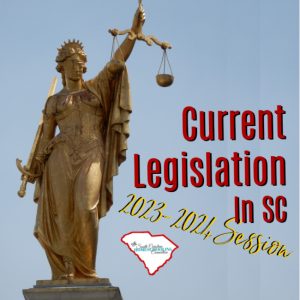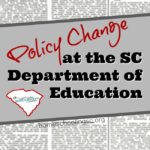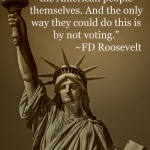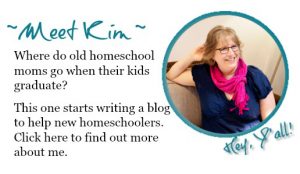This blog began in 2013 when our homeschool rights came under fire here in South Carolina. It’s been a work in progress for us to keep watch and protect our homeschool rights, including bringing awareness to the issues that affect us. We need to dig into the topic of parental rights in homeschooling.
Homeschooling rights are founded on the understanding that parents have the right to direct their child’s education. “Parents or guardians may teach their children at home” ~SC Code of Law sections: 59-65-40, 59-65-45 and 59-65-47. Christian homeschoolers laid the foundation for “parental rights.”
Most parents I know have the foundational understanding that they are their child’s best advocate. It’s understood that we’ve got our child’s best interest at heart. We are hard-wired to protect our children.
In this increasingly polarized political time, you might presume we all agree about our rights as parents. Frequently, we’re told that our parental rights are under attack. Some big, bad wolf is coming to snatch up kids. So, we’re supposed to rally around our collective outrage and fear to defend our rights and freedoms.
It triggers the mama bear in us. I get it.
It’s the outrage and vitriol that concerns me though. That’s the same point where this blog started; in the outrage and chaos of our rights “under attack.” It doesn’t accomplish the goals we think it will. I believe we should be more proactive, rather than reactive.
Parental Responsiblity
Parenting is hard. When you decide to homeschool, it’s normal to worry about the outcomes and if the doors of opportunity will open afterwards. The weight of responsibility feels heavy.
New homeschoolers are often overwhelmed with information overload. You have so many choices to consider and decisions to make. You have to figure out what the law requires, register with an accountability agency, choose curriculum and activities, set a schedule or routine, find social connections, and evaluate the progress along the way.
As much as we crave our independence and resist being told what to do, we cannot do it alone. We all need help. We need encouragement and support. We need resources.
Let’s spend our energy to fight for resources that can benefit us. We have a lot of great opportunities outide of the classroom. But, there’s a couple key problems that we could advocate for together.
- One-year prior clause: The equal access law permitting our students to participate in public school sports and afterschool clubs has a one-year prior clause. The purpose of this is to prevent academically ineligible students from switching to homeschooling where they could theoretically rewrite the report card in order to be declared academically eligible. Of course, we don’t want people to abuse the law this way either.
But, the one-year prior clause is being used to punish students who are academically eligible who switch to homeschooling or virtual schools online. They have to sit out for a year before they can re-establish academic eligibility. The bill to address this loophole is stuck in committee again this session. - PSAT and AP Tests: These College Board exams are administered by the guidance counselors at the local schools. But it is up to each school’s policies and discretion whether they will make accommodations for homeschoolers. It’s understood that the parent will have to pay for the tests. Yet, it’s difficult to get these testing opportunities for our homeschool students. Junior Scholars eligibility is supposedly open to all 8th graders and National Merit Scholarship eligibility for 10th/11th grade. We have to be allowed the opportunity to take the PSAT qualifying test though. We have a similar gatekeeping issue with the availability of AP Tests. We’re missing out on equal opportunities, if we can’t access these tests.
There are other issues involving funding like tax credits for parents or tax credits for education choices. I’m not even talking about those issues because they require arguing about who’s paying for them.
We need more conversations about the resources to offset this heavy weight of responsibility called parenting.
Custodial Disputes
Parental rights advocates presume something about the family unit. They presume the father and mother are united on what’s best for their family. What happens when parents disagree? When the marriage breaks up and devolves into a custody battle?
Unfortunately, I’ve seen many heartbreaking situations when the family courts are biased against homeschooling. They’re focused on evaluating the legitimacy of homeschooling, not the actual academic progress or overall well-being of the children.
Fathers who previously supported the notion of homeschooling, will instead raise concerns about the insufficient qualifications and a substandard education. Mothers who have wrapped their entire lives into providing for the children find themselves in jeopardy of losing custody entirely because she’s “unfit”.
Other custody cases that were previously settled become problematic with the decision to switch to homeschooling. The non-custodial parent and extended relatives can become adversarial about the custodial parent who chooses to homeschool. They might try to renegotiate the custody agreement all over again.
We’re losing our rights in the family courts and I don’t know anyone who is advocating for us. It comes as a huge surprise to many people that HSLDA won’t touch a custody dispute. Homeschool Legal Defense will defend the parents’ right to choose the educational preferences for their own family. However, if the parents cannot agree, they will not get involved. (As stated in their FAQ’s).
Finding legal representation who understands home education is difficult and also expensive. The exit cost of leaving a toxic marriage is very high. The support resources to help these situations are limited.
In a nation where equal rights for women is not guaranteed in the constitution, it might be worth considering how the power dynamic shifts if your family unit no longer fits the “traditional model”. We need more conversations about support resources for families and marriages in crisis mode.
For the Children
I know we’re trying to protect our kids. I think a lot of us are processing the effects of our own childhood trauma. If we could just wrap them in bubble wrap and insulate them from the painful realities of our times.
The inclination to protect them can actually hold them back from developing essential coping strategies along with personal agency and autonomy. One of my favorite parts of homeschooling is redeeming our education. We get to learn alongside our kids.
Parents are reparenting themselves alongside their children. This generation is learning to co-regulate and self-regulate as we navigate these uncertain times together.
@brown19170 #parenting #millennials #emotions #emotionalregulation ♬ original sound – Brown
It’s a super hot topic to mention abuse and neglect in homeschooling. We prefer not to grapple with our own limitations and imperfections as parents. We try to distance ourselves from any negatives and focus only on the positives.
Homeschool alumni who have dared to speak about safeguarding home education have been disregarded and even villified. It’s time for us to listen to their concerns and get proactive about child abuse prevention.
“Everyone appreciates advocacy when it’s directed to those outside the camp. But, when it demands that we evaluate our own faith community, political parties, favorite sports teams, candidates or beloved leaders, we scramble for reasons things are different in *that* space. This is the blindspot that keeps abusers protected and convinces victims it’s never safe to speak up.” Rachel Denhollander, What is a Girl Worth
If we’re committed to protecting the children, we have to be willing to self-reflect about our own communities and meeting spaces. We can advocate for implementing child protection policies to safeguard the children in our communities. Here are a couple resources to help you get started in any organization that works with, for, and around children.: GRACE Godly Response to Abuse in the Christian Environment and CREATE Child Rights Evaluation, Advice, and Training Exchange.
While we’re self reflecting, let’s consider the rights of the child. The United Nations has an international treaty called the Convention of the Rights of a Child (CRC) that advocates for children to receive human rights including healthcare and education, and protection from exploitation, abuse and neglect. CRC entered into force in 1990, and since then 195 countries joined the agreement, making it the most widely ratified human rights treaty.
The United States and Somalia still have not ratified the agreement. Our hold-up is because parental rights advocates contend it infringes on their absolute rights to raise and discipline their children. This is in spite of the treaty repeatedly deferring to the rights and responsibilities of parents to raise and provide guidance for their children.
We need more conversations about recognizing the signs of abuse and preventing the crisis before it escalates. Measures like S.3085-PACE Act would establish a program to prevent adverse childhood experiences and promote positive ones. That’s where we can bring about lasting, practical change for our children.
****************
Shouting over each other only serves to divide us against each other. We actually need each other. I’d rather we put our energy into building resources that liberate our kids and inspire hope for the future.
What Is a Girl Worth?: My Story of Breaking the Silence and Exposing the Truth about Larry Nassar and USA Gymnastics



















 Policy Change at Department of Education
Policy Change at Department of Education Give Thanks Campaign
Give Thanks Campaign Vote Wisely
Vote Wisely Eat the Frog First
Eat the Frog First




Speak Your Mind